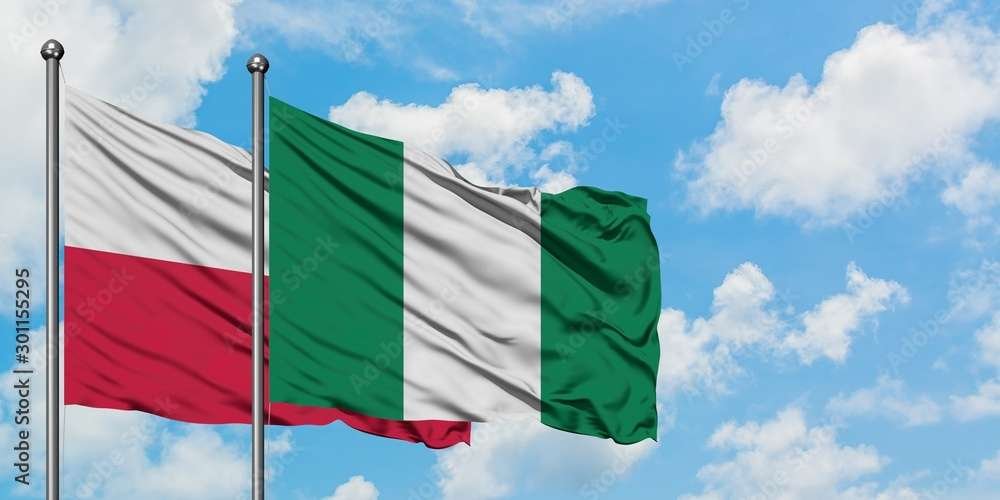Polish authorities have issued a formal appeal for the release of seven citizens detained in Nigeria, a situation they believe stems from a misunderstanding during the ongoing unrest in the West African nation.
The incident, which involved six Polish students and a lecturer from Warsaw University, has sparked diplomatic efforts to secure their safe return.
The students and their professor, who were in Nigeria as part of a program to study the Hausa language, were detained earlier this week in Kano, a state in northern Nigeria.
According to Nigerian authorities, the group was arrested for allegedly carrying Russian flags during a protest—an allegation that Polish officials have strongly contested.
A spokesperson for Nigeria’s secret service confirmed the arrests but provided few details. Polish officials, however, have dismissed the claim, pointing out the improbability of their citizens displaying Russian symbols.
Poland, a country with a deep-seated wariness of Russia due to its historical suffering under Russian rule, has been a vocal critic of Russia’s actions in Ukraine. The idea that Polish nationals would publicly show support for Russia is met with disbelief in Warsaw.
Deputy Foreign Minister Jakub Wisniewski has been at the forefront of diplomatic efforts to resolve the situation.
Following a meeting with Nigeria’s charge d’affaires in Warsaw, Wisniewski briefed reporters on the steps Poland is taking to bring the students and lecturer home.
“In our discussion, I expressed my belief that the students’ actions might have been a result of their unfamiliarity with local customs, culture, and laws,” Wisniewski stated.
“I urged the Nigerian authorities to consider allowing the students and lecturer to return to Poland, where their families are anxiously waiting for them.”
Jakub Wisniewski
Wisniewski reiterated that he did not believe the students were carrying Russian flags, emphasizing the unlikelihood of such an action given Poland’s staunch opposition to Russian aggression.

The seven Polish citizens have since been transferred to the capital, Abuja, where they are reported to be safe. Poland’s consul was scheduled to meet with them on Friday afternoon to assess their situation and provide any necessary assistance.
Protests Spark Criticism Over Nigerian Security Tactics
This diplomatic tension arises against the backdrop of significant unrest in Nigeria, where the government has imposed a curfew and banned public demonstrations in response to widespread protests.
The protests, driven by soaring inflation and widespread hunger, have seen sporadic displays of pro-Russian sentiment, particularly in the northern regions of the country.
This trend has been noted in several African nations where pro-Russian sentiments have gained traction, particularly in those governed by military regimes distancing themselves from Western influences.
Nigerian security forces have been criticized for their heavy-handed approach to quelling the protests. While the government has acknowledged the death of a teenage protester, claiming it resulted from a “warning shot,” local reports suggest a higher death toll.
Several families have alleged that their relatives were killed by security forces, with some of these claims corroborated by eyewitness accounts and video footage.
“There was absolutely nothing during that protest to justify the use of live ammunition,” said Isa Sanusi, director of Amnesty International in Nigeria, highlighting concerns over the excessive use of force by security personnel.
The protests have been fueled by Nigeria’s deepening economic crisis, which has pushed inflation to a 28-year high of 34.19% and left the local currency, the naira, at record lows against the dollar.
Despite its status as Africa’s most populous nation and its vast oil wealth, Nigeria is grappling with severe poverty, with over 63% of the population living in deprivation.
The government’s economic policies, aimed at saving money and attracting investment, have been blamed for exacerbating the crisis.
As the world’s third most populous country, a status Nigeria is expected to hold by 2050, the ongoing unrest and economic instability are cause for global concern.
Despite its resources, Nigeria remains plagued by poverty and hunger, with the United Nations reporting that it accounts for 10% of the global hunger burden.
Meanwhile, the country’s political elite continues to face accusations of corruption and mismanagement, further fueling public discontent.
The situation remains tense as diplomatic efforts continue, with hopes that the Polish students and lecturer will soon be reunited with their families.
READ ALSO: Ngozi Nwosu Shares an Unforgettable Experience From Early Career



















